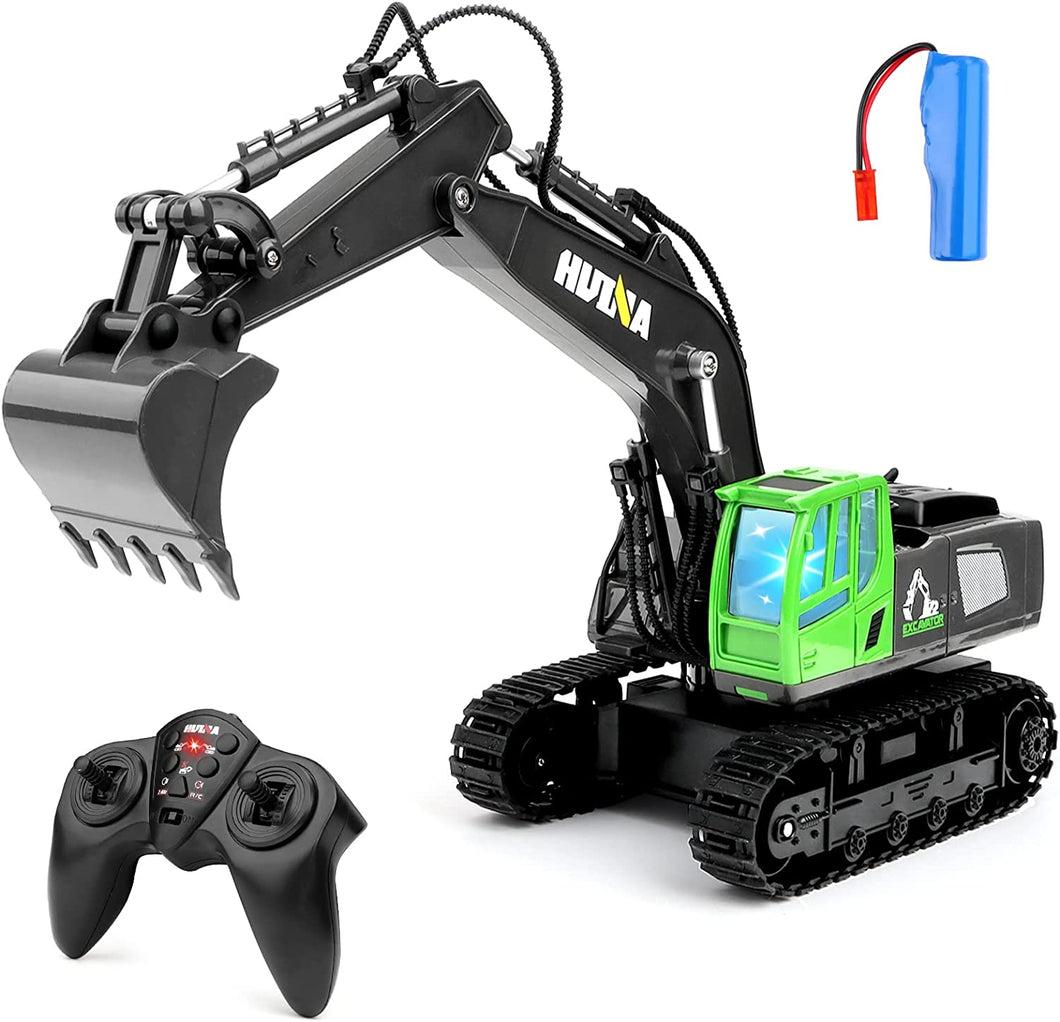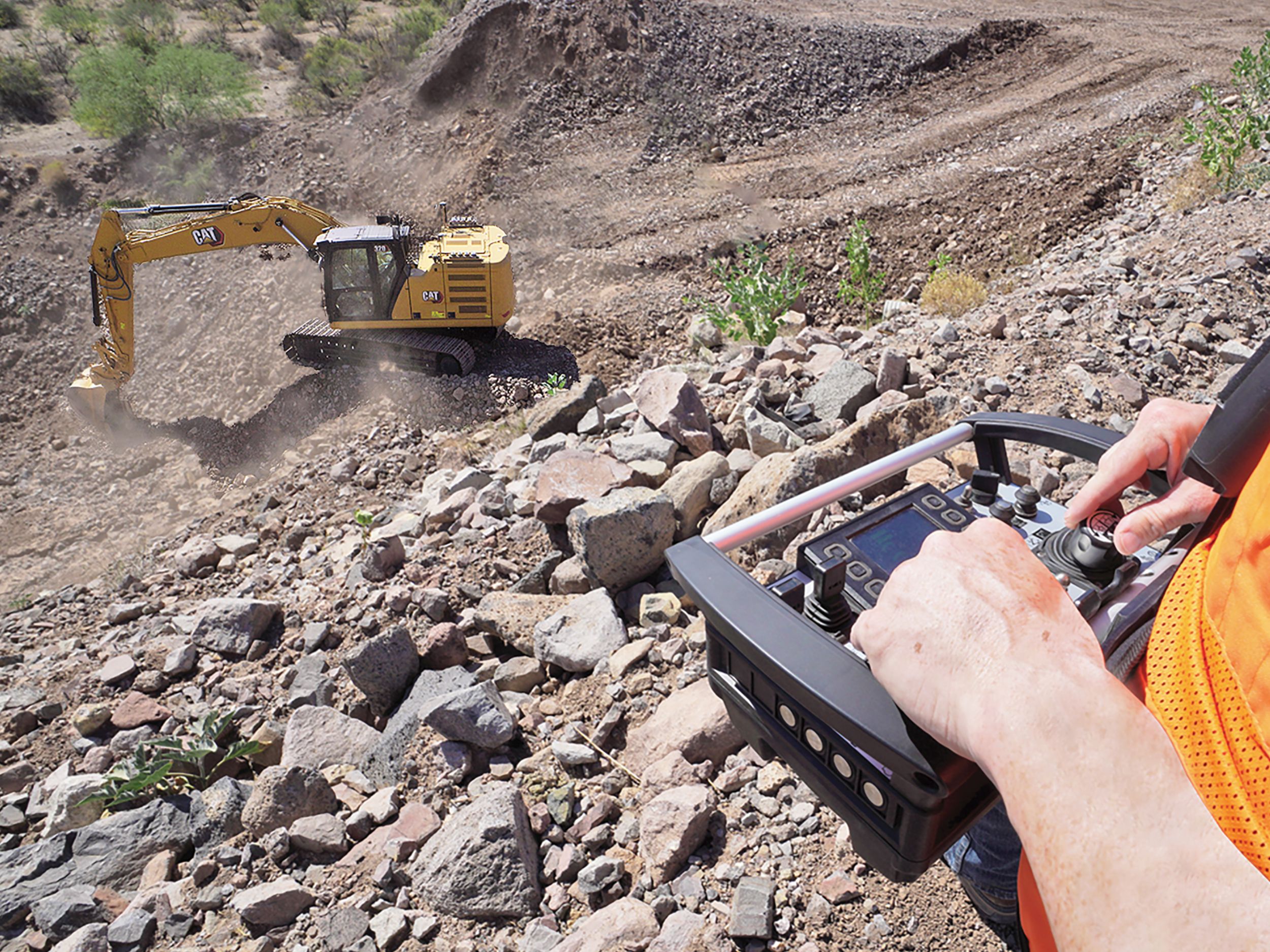Recognizing How Excavator Functions and Its Influence On Performance
Excavators play an important function in building and mining operations, relying upon a complicated interaction of mechanical and hydraulic systems. Their capability to execute a range of tasks rests on both their design and the innovation incorporated within. Comprehending these components can significantly affect functional effectiveness and efficiency. As developments remain to improve the sector, one should consider just how these adjustments will certainly influence future techniques and efficiency.
The Fundamentals of Excavator Mechanics

The Function of Hydraulic Equipments in Excavators
At the heart of excavator operation exists the hydraulic system, which plays a crucial role in powering the equipment's movements and functions. This system utilizes pressurized hydraulic fluid to transfer energy, making it possible for various activities such as moving, digging, and lifting. By utilizing the concepts of hydraulics, excavators can do tasks with exceptional accuracy and force, boosting total operational efficiency.The hydraulic system contains crucial parts, including shutoffs, pumps, and cyndrical tubes, which work together to control the flow and instructions of the liquid. When the operator engages the controls, the hydraulic liquid is guided to particular cylinders, converting the driver's commands into physical activity. This device enables for smooth and receptive activities, which are necessary in building and construction and excavation environments. double e volvo rc excavator. The effectiveness of the hydraulic system directly impacts the performance and convenience of the excavator, making it a vital element in modern-day excavation procedures
Trick Parts of an Excavator
Recognizing the vital components of an excavator is necessary for comprehending just how this effective maker operates. An excavator includes a number of substantial elements, including the undercarriage, house, boom, container, and arm. The undercarriage gives stability and movement, often including wheels or tracks to browse numerous surfaces. The residence contains the engine and hydraulic systems, enabling the driver to regulate activity and power the equipment. The boom expands from your home, making it possible for vertical reach, while the arm connects to the container, assisting in digging and lifting operations.Additionally, the taxicab houses the operator, outfitted with controls for accurate handling. Each of these elements plays an essential duty in the excavator's general functionality, adding to its effectiveness and efficiency on construction sites. Comprehending these parts helps in maximizing and maintaining excavator performance, guaranteeing jobs are finished securely and properly.
Attachment Convenience and Its Advantages
Accessory adaptability is an important element of excavators, making it possible for drivers to change in between various devices customized for details jobs. This versatility not just boosts task performance but additionally adds to cost-effectiveness by lowering the requirement for numerous devices. Recognizing the various types of add-ons readily available can substantially influence the general performance and capability of an excavator on job websites.
Types of Attachments
While excavators are largely acknowledged for their digging abilities, their true adaptability lies in the wide array of attachments readily available. These attachments enhance the excavator's functionality, enabling it to carry out different jobs past excavation. Typical attachments consist of containers (for excavating and scooping), hydraulic thumbs (for realizing materials), and augers (for drilling holes) Grapples are made use of for taking care of and moving particles, while rippers can break up hard surface areas. Other specialized attachments, such as trenchers and plows, make it possible for excavators to adapt to particular work needs. This diversity not only enhances the machine's energy throughout various industries, consisting of construction, demolition, and landscape design, yet likewise enables operators to tailor their devices to satisfy certain job demands successfully.
Increased Job Performance
Making the most of work performance is a main advantage of using different excavator add-ons. Various attachments enable an excavator to execute multiple tasks without requiring to change devices, conserving valuable time and labor. view publisher site Making use of a hydraulic hammer can damage concrete while a bucket add-on can dig deep into dirt, allowing a smooth process. This flexibility lowers downtime linked with devices modifications and improves productivity on-site. Furthermore, specialized add-ons improve precision in tasks such as grading or landscaping, leading to better outcomes. The capacity to adjust to different work requirements not just simplifies procedures however also decreases the requirement for extra equipment, guaranteeing that jobs are completed swiftly and efficiently. On the whole, attachment versatility substantially adds to boosted work effectiveness in excavation job.
Cost-Effectiveness and Adaptability
Cost-effectiveness is a considerable benefit of using versatile excavator add-ons. These attachments permit a single excavator to execute several tasks, lowering the demand for extra machinery and labor - double e volvo rc excavator. By switching in between buckets, hammers, and grapples, drivers can take on various projects, from digging to demolition, therefore taking full advantage of equipment use. This adaptability not only reduces functional prices however additionally minimizes downtime linked with changing equipment. In addition, the ability to personalize excavators with specialized add-ons boosts performance, as they can efficiently deal with varied jobs according to project demands. To conclude, the mix of cost-effectiveness and flexibility in excavator accessories contributes to enhanced operational efficiency and resource allocation in building and construction and excavation jobs

Advanced Modern Technology in Modern Excavators
Modern excavators are progressively geared up with advanced modern technology that changes excavation processes. Automation streamlines procedures, while improved gas performance lowers functional costs. In addition, smart control systems boost precision and safety and security, noting a significant advancement in excavation devices.
Automation in Excavation Processes
As excavation technology advances, automation has become an essential component in enhancing performance and precision on work sites. Modern excavators are furnished with advanced automated systems that promote jobs such as grading, digging, and trenching with minimal driver treatment. These systems utilize sensing units, GPS, and artificial intelligence formulas to assure exact positioning and deepness control, substantially reducing the margin for mistake. Additionally, automation allows drivers to concentrate on calculated decision-making instead than hands-on controls, bring about improved efficiency overall. Such advancements not only enhance workflows however additionally enhance safety by lessening human mistake in complex operations. The assimilation of automation in excavation processes represents a considerable development in building modern technology, driving the industry in the direction of higher performance and effectiveness.
Enhanced Fuel Efficiency
Developments in innovation have likewise resulted in considerable enhancements in gas effectiveness for modern excavators. Modern makers are outfitted with innovative engines that enhance power output while reducing gas intake. These engines use cutting-edge burning technologies, such as turbocharging and direct fuel injection, to improve performance and performance. Additionally, lightweight products in building and construction reduce overall weight, enabling less energy expenditure during procedure. The introduction of variable speed controls makes it possible for drivers to readjust engine efficiency according to details tasks, better decreasing fuel use. As a result, these enhancements not only reduced functional expenses yet also add to environmental sustainability by lowering exhausts. On the whole, boosted gas performance in excavators is a crucial growth that boosts productivity and financial practicality in the construction sector.
Smart Control Solution
While drivers browse increasingly complex job websites, smart control systems in excavators have emerged as important devices for enhancing efficiency and precision. These innovative modern technologies make use of sensors and formulas to check various parameters such as tons weight, surface conditions, and operational efficiency. By instantly changing hydraulic features, clever systems enhance equipment performance, leading to boosted efficiency and lowered wear on components. Furthermore, drivers gain from user-friendly user interfaces that offer real-time responses and diagnostics, enabling informed decision-making. This combination of innovation not just simplifies procedures yet also reduces human mistake, adding to more secure Your Domain Name work atmospheres. As the building and construction industry remains to evolve, wise control systems will certainly play an important function fit the future of excavator effectiveness and performance.
Enhancing Operational Effectiveness With Excavators
Excavators play an important duty in enhancing operational performance throughout numerous building and excavation jobs. Their adaptability enables numerous tasks, including lifting, digging, and material handling, which simplifies operations and lowers the demand for extra devices. With effective hydraulic systems, excavators can execute sturdy jobs with accuracy, significantly decreasing the time required to full jobs. The integration of advanced technology, such as general practitioner and automated controls, additionally enhances their procedure, enabling operators to attain better precision and minimize material waste. In addition, modern-day excavators are developed to consume much less gas and lessen discharges, adding to go both cost financial savings and ecological sustainability. By using excavators effectively, building and construction groups can improve productivity, fulfill project target dates, and improve total site monitoring. This multifunctionality and effectiveness make excavators important tools in the modern-day building landscape.
The Future of Excavators in Building And Construction and Mining Industries
As the building and mining industries progress, the future of excavators is poised for substantial change driven by technical development and transforming operational needs. Advancements in automation and fabricated intelligence are reshaping excavator abilities, allowing for improved accuracy and effectiveness in procedures. Self-governing excavators are arising, decreasing the demand for human intervention and reducing the threat of accidents.Moreover, the integration of telematics and IoT innovation makes it possible for real-time tracking of equipment efficiency and predictive maintenance, enhancing uptime. Environment-friendly layouts, consisting of hybrid and electric designs, are acquiring grip, straightening with sustainability objectives within the industry.Additionally, making use of advanced materials and lighter layouts improves gas efficiency while maintaining performance requirements. As these patterns development, excavators will certainly play an essential role in meeting the enhancing demands for efficiency and security in building and construction and mining, inevitably changing operational landscapes.
Often Asked Concerns
Just How Do Weather Conditions Impact Excavator Performance?

Weather conditions significantly influence excavator efficiency, as rainfall and mud can impede traction and stability, while extreme temperature levels may affect hydraulic systems. Operators has to adapt to these variables to guarantee suitable performance and safety throughout procedures.
What Security Steps Should Operators Follow While Using Excavators?
Safety and security procedures for excavator operators consist of using ideal individual protective equipment, performing pre-operation assessments, making sure appropriate communication with ground employees, preserving a secure distance from overhanging dangers, and adhering to well established operational procedures to avoid crashes.
Exactly How Commonly Should Excavators Be Maintained for Optimum Efficiency?
Excavators must be preserved regularly to assure peak performance, generally every 250 operating hours or as defined by the manufacturer. Routine checks improve reliability, stop unexpected failures, and extend the life expectancy of the tools.
What Is the Average Life Expectancy of an Excavator?
The ordinary lifespan of an excavator usually varies from 10,000 to 15,000 hours of procedure. Elements affecting long life consist of maintenance methods, running conditions, and the quality of the maker itself, influencing overall productivity and effectiveness.

Can Excavators Operate Uneven Terrain Properly?
Excavators can run efficiently on unequal surface as a result of their articulated designs and adjustable tracks. These functions permit them to keep stability and traction, enabling effective operation in difficult settings generally encountered in construction and landscaping jobs. Each of these elements plays a crucial duty in the excavator's total functionality, contributing to its performance and effectiveness on building websites. Maximizing task effectiveness is a key advantage of utilizing different excavator add-ons. While drivers navigate progressively intricate work websites, smart control systems in excavators have emerged as vital tools for improving efficiency and precision. Excavators play an essential role in boosting functional effectiveness across various building and construction and excavation tasks. Developments in automation and artificial intelligence are improving excavator abilities, allowing for enhanced accuracy and effectiveness in operations.